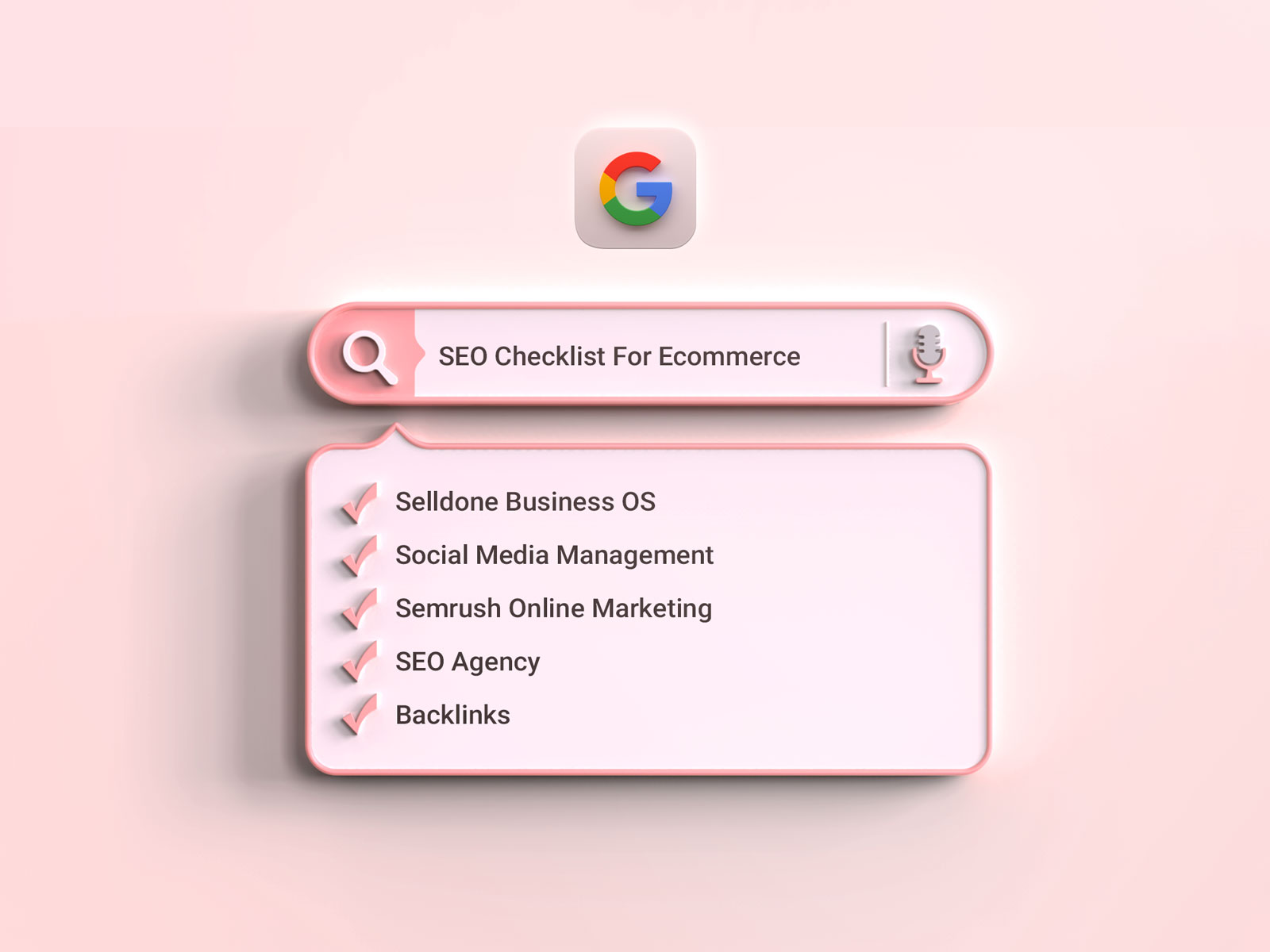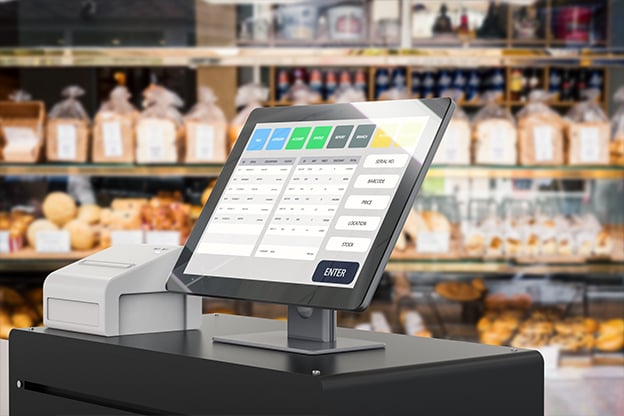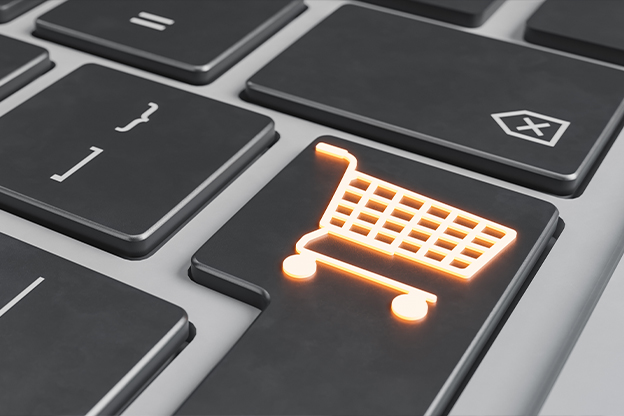Is Selling on Amazon Worth It? [Pros and Cons of Selling on Amazon]

In 2019, Amazon reported small and medium-sized businesses had sold 4,000 items per minute. And these numbers are for before coronavirus break out and lockdown, which made people appreciate online platforms such as Amazon, because they could start buying whatever they need, whenever they need it, and from the safety and comfort of their sofa or their bed.
Amazon is an international ecommerce platform that offers online retail, computing services, consumer electronics, digital content, and other local services such as daily deals and groceries.
Amazon is the number one e-retailer (electronic retailer) in the United States, with net sales amounting to close to 386 billion U.S. dollars in 2020.
So, even if you didn't know already, now you know that Amazon is a pretty huge company and a marketplace for retailers to sell their items. If you are a retailer or are thinking about starting your online business, which contains selling items on the Internet, you should consider selling on Amazon. This article will go through the pros and cons of selling things and goods on the Amazon platform. By reading this article, it will be easier for you to decide if the Amazon marketplace is your cup of tea or not.
Best Ecommerce Business Model for Small and Medium Enterprises
Benefits and Advantages of Selling on Amazon
Amazon has successfully captured our minds as well as the ecommerce market. By having more than 200 million Amazon Prime users all over the globe and 66 percent Amazon Prime users in the United States, the giant Ecommerce company has proven to be loved by its users. In this section of this article, we will cover what's good about listing your items to sell on the Amazon marketplace. So, without wasting any more time, let's dive in.
1. It will increase your sales (a huge number of the active user)
Millions of active users will surf Amazon's items looking for an item to buy or searching for that hair dryer they need to order. By listing your products on Amazon, you'll automatically expose the product to tons of potential buyers. The number of active users shopping on Amazon is enormous, and there's a good reason for this. Through the years, Amazon has gained popularity and credibility. Amazon is a known marketplace everywhere. In countries where local online shopping platforms haven't gained much popularity, Amazon is their go-to option to purchase products online as it's known and trusted by most people worldwide.
Amazon strives to offer excellent services to its customers. Every merchant and retailer benefits from listing their products on Amazon. That's because users prefer to buy from a well-known platform such as Amazon than purchase from an online shop that no one has ever heard of. Anyone who has ever bought from Amazon most definitely had a great experience and will continue buying from Amazon after that.
On the other hand, listing your products on Amazon will bring credibility to your shop. Customers will trust your business if they see you on Amazon.
2. Huge customer base
As mentioned above, listing your products on Amazon will define your shop as trustworthy and expose the shop to tons of potential buyers and new customers. Indeed, most people don't look up shops on Amazon. Instead, they search for the product which they need. But when they find out that your shop has that item they've been looking for, they check out your shop as well.
When someone is going to purchase your goods and items for the first time, you are in control of a lot of things that will define if they'll be a loyal customer or not. If they do buy from your shop, it's primarily up to you whether it was a one-time purchase or whether they will purchase more of your products. If the experience of buying from your shop was good enough, you got yourself a loyal customer who will come back to buy from your shop in the future as well.
One of the things that have a significant effect on the customer is the quality of your products. If the product has a good quality, there's a high chance that they will come back and buy from your shop again. But if the product lacks quality, the case of that customer coming back to purchase from you in the future is close to zero. And they might even tell their friends to keep them from buying from you or post about your low-quality products on social media.
3. Efficient marketing expenses
The cost of marketing and advertising for your shop on Amazon is pretty low. There is already an active audience ready to buy, and any one of them might be a potential customer for your shop. Amazon marketplace works with its independent search engines, so the shoppers can easily find you when looking for the product they need to buy. Every day, millions of customers surf through Amazon looking to purchase the product they need. You could also sell on the first day of listing your product, but it also depends on your niche and how crowded the market is.
Although you should not forget the power of good advertising as it could pay off as there are a lot of merchants selling their products on the Amazon marketplace, and the competition is fierce. So advertising can be helpful for you; it makes your products more visible on the search engine results and helps you stand out from the competitors and better get your products out there, as the sponsored products will be shown just before the non-sponsored products.
4. Opportunity to grow internationally
Although Amazon doesn't have sites in every country, it ships products to over 100 countries globally. Amazon is a trusted company all over the world, so by using Amazon's ecommerce platform, you have the opportunity to take your business to other countries, and your shop can sell its products to people all over the world. You live in the United States and have listed your shop in France. If the shopper in France decides to buy your product and pay a higher shipping fee, they can buy it.
Trying to grow your business internationally can also be done without the help of Amazon, but Amazon does make it pretty much more accessible. For example, suppose you want to sell your products in France. In that case, you have to open an online shop, the language of that online shop should be French, the payment method should be as such that French shoppers can pay quickly, and you should also consider how you want to ship out the final product that it's cost-efficient as well. As you can see, a lot of hard work needs to be done to sell a product in a country that we aren't yet sure will be appreciated or not.
If you use Amazon to sell your products to another company, all you need to do is list your shop in that country and start listing your products in that country. The rest is done; the payment method, the local language support staff, and the shipping method are done by the Amazon company.
5. It's a research platform
Aside from being the leading online marketplace, Amazon is a research platform for all the different kinds of products. People will be checking out your product no matter if they will purchase it or not. Even if they are going to buy that product offline from a local retailer, they might still be searching on Amazon for that product, reading comments, checking out the ratings and descriptions to make sure if it's going to be beneficial to them or not.
Amazon is the central place for researching a specific item; they will be looking for information and insights into characteristics, competition, and reputation. If you haven't listed your products on Amazon, you are missing this research channel as the shoppers will be looking at your competitors' items instead of you. So using Amazon helps you with that and not be left out of this opportunity which can bring you a lot of potential buyers.
6. It increases efficiency
Although Amazon is stringent and severe on specific processes and how some procedures are done, it may be helpful for you in the end. A lot of it may indeed sound like you're wasting your time over some things that aren't worth your time. Still, while doing that, you're learning practices that may come in handy after all, and you can perform those practices on to your business which results in you changing your business for the better. The change you make can be anything at all, whether it's the marketing plan you choose to raise your sales or it's the delivery experience that's being improved will ultimately affect the way your business brands itself and could easily be the thing that will make you different from all the other competitors in your audience's mind.
7. Brand ownership
The products your business offers might be on Amazon's platform already because some reseller has decided to sell them. They may have used blurry and low-quality images or have written sloppy text for a description, or the delivery experience isn't good enough. Whatever the problem may be, listing your items on Amazon is a chance for you to define your brand as these kinds of errors will hurt your brand's reputation and, thus, your business's credibility.
With you listing your products on your own comes a lot of advantages. You can use high-quality images and a well-written description. Aside from maintaining the ownership of your brand, you are also able to offer better prices than some resellers. With a satisfying delivery experience, you ensure that your brand is represented the way it needs and deserves to be.
8. It's pretty easy to get started with ecommerce
With starting your ecommerce journey at Amazon, all you need to do is list your products to market. You don't need to create a website, create daily content, worry about maintaining it every day, deal with a problem that pops up now and then, worry about the customers and how much you need to sell this month. In Amazon's marketplace, all that represents your shop is the products you listed, and you don't need to deal with daily maintenance issues that could happen. Also, Amazon makes sure that your customers will receive their product just in time.
Starting an ecommerce business from scratch can be very hard. Hosting your website, struggling with bringing organic traffic, all the marketing and advertising plans that need to be taken care of. Starting an ecommerce business is hard even if you are using Amazon or Shopify to kick off your business; the hardship rises when you need to do extra work aside from taking good photos, writing a convincing description, and working on the delivery experience. Creating an account and listing your products on Amazon takes a lot of work off your shoulders and makes it easier for you.
If logistics don't work for you, you can also try Amazon's Fulfilment By Amazon (FBA). We will cover a section about FBA in this article as well.
How Do I Make Money From Home with a Unique Small Business Idea?
Disadvantages of Selling on Amazon
There are indeed a lot of benefits you can gain by listing your products on Amazon, but it's not all sweet and stuff. There are some cons and disadvantages to this as well, such as high prices, there are a lot of competitors in any niche you choose to work in, there are high selling fees that you need to consider. So, before you decide whether you list your products on Amazon, you need to know the disadvantages and check your business plan and marketing strategy to find out if it's a good decision for your business.
1. High selling fees
All of the pros and advantages of showing off the products of your shop on Amazon and being exposed to an audience of that size come with a price. Amazon charges retailers a hefty commission fee for every sold product. So before starting listing your shop on Amazon, you might want to know about the commission fees and check up your margin and profit amount to find out if it's the best thing for you.
When you create a business account on Amazon, you have two options to choose the type of plan you want to use based on your needs: Professional or Individual.
A Professional account costs $39.9 per month, but there are no fees on sold items.
On the other hand, an individual plan doesn't need any monthly subscription fees, but it costs you $0.99 per sold item.
If you can't decide which plan to choose, I recommend you use the individual plan if you're not sure about what you're going to sell, or you sell under 50 items a month. Otherwise, I recommend you use the professional plan, which will help you work more professionally, as the name also suggests.
But no matter which plans you choose to stick to, retailers still have to pay a referral fee for every item that has been sold. The referral fee amount depends on which category your item has been placed in; the amount varies from 8% to 96% for every item sold.
If you choose to go with FBA, you need to consider other fees and expenses, though; you have to pay fulfillment per each sold item and monthly storage unit costs. When thinking about all these expenses, the question that comes to mind is: Is it worth it?
Well, it depends. If you're going to use marketplaces such as Amazon to sell your products, you will pay fees for items you sell. On the other hand, there are shopping channels which you can also use to get your items out there, but they have different kinds of expenses. They charge you a fee for every click, and it doesn't matter if that click ended with you selling an item or not; you have to pay a fee. So as you can see, by using a marketplace like Amazon, at least you are paying a fee in return for your item being sold.
To figure out whether you should list your products on Amazon or not, you should calculate your profits and margins. If you're going to sell products in low-margin categories, maybe you should check other places where you could sell your items because the profits and the expenses won't add up; thus, you wouldn't run a good shop. But, if the numbers work for you, you might be able to use Amazon, and with a decent amount of work and the proper planning, you should be able to run a successful business selling your products on Amazon.
2. The competition is stiff
Amazon is indeed the most extensive online marketplace today, and millions of users go through the items available on the platform to purchase the one they need. With this kind of audience and potential customers, and to put its demand, there has to be enough supply to match the demand level.
Suppliers, in this case, are millions of retailers and merchants who have listed their products on the platform and are hoping to sell more than others. This brings competition and makes trading on the platform harder for everyone. You need to be selling rare and unique items or offering your products at a competitive price to get the customer's attention and make them choose you over your competitors. The other way you can stand out from the others is to use Amazon's advertising plans and sponsor your products. As you may already know, the sponsored products are visible in the search result before the non-sponsored products, thus raising your chance of selling your items.
3. Lack of control
When you list your shops and items on Amazon to sell, you should be ready to give a tremendous amount of control to fit Amazon's rules and policies. When you sign up on Amazon, you agree to do things the way Amazon prefers, which means you communicate with the shoppers, make good on the A-to-Z guarantee, and even what you are and aren't able to sell list on your shop. If you choose to use Amazon as the platform to sell your products, you should be able to give up a large amount of freedom and independence to match Amazon's policies and work on Amazon.
How to Start Dropshipping for Free? [Beginner's Guide]
4. It requires a lot of time
While selling on Amazon is a straightforward thing, it doesn't mean that it's also an easy thing to do. Selling on Amazon is a very time-consuming process, as there are a lot of functions and services on Amazon that you need to fill, apply and adapt to be able to work on the platform. As mentioned above in this article, the competition is stiff, and tons of retailers wish to sell their items on the forum, so putting the minimum amount of time doesn't work on Amazon. It doesn't put you in a leading position.
To successfully sell on Amazon, you need to put tons of time into making it work; the products' stocking and delivery need to be perfect. Delivery, the quality of the item you're selling, and the client services should be flawless. The images you take of your products and the product pages need to be great to pay off and make selling on Amazon worth all the troubles.
5. Changes the way you operate
You may already have a tax plan and a procedure to work and run your shop, business and sell your products. But if you are going to work and sell your items on Amazon, you should change your plans and procedures to match Amazon's and make Amazon more efficient.
This is another sacrifice you need to make to sell your products on Amazon's marketplace. Changing your processes and plans is hard, specifically if they work fine and everything is going as expected. But if you are willing to change your plans and put in the amount of time necessary to sell on Amazon, all of these might be worth the trouble you're going through.
6. You don't own the platform
Sure, starting your shop and listing your items on it doesn't seem as hard as creating your platform to show off, sell and absorb organic traffic for your products. It does come with a cost, though, as every retailer who uses Facebook or Instagram to sell their items learned it the hard way every time Facebook or Instagram decided to change the algorithm. Each time they decided to change the algorithm, retailers had to drastically alter their strategies to match the changes and gain back the traffic they could have lost for this change.
It is easier to sell your products on already built platforms and enjoy the sales and the traffic of the already existing audience who checks up the forum daily. But it doesn't come for free as you don't have total control over how you conduct business. For example, Amazon once decided to discount products provided by third parties without telling them. Now, of course, the money the retailers receive is as much as if there was no discount on the products, but this is a deal-breaker for those who want to maintain control over their business.
It may not seem that creating your platform to sell your products isn't worth your while, but what you gain in the end is control, and sometimes management can make all the difference in the world. To put it simply, let's look at the bigger picture. Who do you think makes the most profits? the retailers. The latter use marketplaces such as Amazon or social platforms like Instagram to sell their items, or Amazon and Instagram?
Owners of Amazon and Instagram are the ones making the most money out of it, and it's because they have total control over their platforms.
7. Lack of rich customer data
Another downside of using Amazon's platform (or any other platform that isn't yours for that matter) to sell your products and grow your business is that you don't have access to the customer data. This is one of the main reasons why brands need to develop their platform to sell their products somewhere along the way if they're going to grow their business and be more successful in the future.
Retailers who don't have access to the customer data are missing out on what could be a game-changer. Brands that have access to the customer data can provide customers with more related content and even improve the product or the way they operate in a way that suits the customers and causes a rise in sales. Having access to all those customer data and looking at those insights could be more defining and vital than you may think. Customers are more likely to purchase as a result of personalized brand content. They are more likely to become loyal customers, and the chance of them coming back to make another purchase is drastically higher than after a non-personalized brand content.
8. Amazon may compete with you
Amazon has been accused of using customer data to figure out the best-selling items from different merchants and then listing that product at a lower price. If you check Amazon Basic out, you will find out that most of those items are replicas of the same effect as Amazon's platform. If you have listed an item and it was a success, the customers loved it, and you had tons of sales, the chances are that Amazon is going to list a replica of the product and offer the exact item to the customers at a competitive price to win over the customers.
Having a shop on Amazon is like having a shop at a mall, and the mall owner will open a shop next to you if you perform well enough and sell all of your products at a lower, more convenient price to win over your customers. This is not a mall owner at all; that's a competitor with the disguise of a mall owner.
Of course, Amazon has answered these accusations: "we strictly prohibit our employees from using non-public, seller-specific data to determine which private label products to launch. While we don't believe these claims are accurate, we take these allegations very seriously and have launched an internal investigation."
Is selling on Amazon FBA profitable? [Pros & Cons of Fulfillment by Amazon]
Over the years, Amazon has been growing drastically to a point where right now it's the second-largest retailer platform and the largest online retailer in the United States. Being the most comprehensive online ecommerce platform has made many merchants use Amazon to list their products and try to sell them. Right now, it has more than 2 million retailers working on the platform, though it means that the competition is stiff, and it's getting harder to get your items out there and for buyers to find you between all of the competitors. The competition has increased significantly since the coronavirus outbreak, but demand for online shopping has also increased in recent years. So, to get answers to your questions, keep reading. This section will cover whether it is worth it to sell products with the Fulfilment By Amazon plan and if it is too late to open a shop and list all of your items there.
How much do sellers make on Amazon?
This is a question that all of those who have decided to start selling on Amazon or any other online retailer platform have asked at some time. How much can you make selling products on Amazon?
To answer this question, we will go through some numbers and statistics of sellers selling items on Amazon's Fulfilment By Amazon (FBA). 85% of those who have chosen to sell on Amazon FBA have reported profitable.
More than 50% of sellers on Amazon reported more than $5,000 per month. And more than 25% of sellers bring in more than $25,000 sales per month.
50% of sellers have made more than $50,000 sales in their lifetime, and 19% of sellers have reported more than $1,000,000 sales.
These numbers mention revenue and how much sellers sell over a month or a lifetime. It doesn't take expenses and all those fees into account; in other words, these numbers aren't about how much money you make off of it or how much is the net profit. To calculate the net profit, you should consider all the fees and if you are going to use FBA, calculate the storage unit fees and the referral fees. Then you can figure out how much you can make in a month from selling certain products on Amazon.
Many sellers signed up on the platform in the last two years. Still, the numbers look promising as Amazon's supply chain and the massive customer base looking to buy products on the forum daily has made it easier for sellers to start, and they can see signs of success even in their starting days. You can start selling products on your first day if you have all the correct elements, proper planning, high-quality images, fair prices, etc.
Is there too much competition? Should the competition encourage you?
While it is true that more than 600,000 new sellers have joined Amazon to sell their products, and a large number of sellers are signing up on the platform every day to start their ecommerce career, it doesn't mean that you are stealing customers from each other. But instead, you are sharing a much larger customer base that is growing day after day.
Although this level of competition sounds challenging, it's not an imperfect competition. This much competition shows a market ready to buy your products. If you are a new seller, don't rush into things and pick an item to sell just because it's easy to supply or because it's trendy without doing deep market research first. Take as much time as you need and do proper product research to determine which product is the best for you to sell on Amazon. Factors that should affect your product research are the popularity level of that product in the country you will list your products in, calculating the profits and the costs of selling those products on Amazon, etc.
Can you be successful in selling on Amazon?
So, we have talked about the competition on Amazon, how many new sellers are joining the merchant base of Amazon, and how extensive the customer base is. We have covered how much you can potentially make selling products on Amazon; this section will cover exactly how much it costs to be a successful retailer on Amazon, besides the money you should spend upfront to kick off the business.
You need to invest some money upfront
One of the most popular questions people ask is, How much money do you need to start with?
To answer this question, we will look at some statistics to find out how much money the other sellers started with. Roughly 58% of sellers on Amazon started with around $5,000; this may sound unacceptable to some of you who want to start their business at a lower cost; the good news is that 28% of sellers start with something around $1,000 and 18% have started selling products on Amazon with only $500. If you are going to start your private brand and sell it on Amazon, you need to spend some more money; it's only reasonable. But if you are determined to make money as soon as possible, you can start with retail arbitrage or wholesale and start from there.
Many new sellers decide to take loans from banks or family members or some business loan. Suppose you are also one of those who are considering taking a loan to start your business. In that case, you should know that taking a loan could be risky as you could choose a poor inventory, or have made a mistake during the product research and have picked the wrong product to sell on Amazon or for any other reason couldn't sell as much as you thought you would. This could make problems with the payback due date; this is why taking a loan could be risky.
Suppose you're taking a loan from a family member, or it's a kind of business loan or investment. In that case, you should take the time to sit down and explain the procedure to them to avoid any misunderstanding or miscommunication.
You need to spend as much time as needed
As you should know by now, competition is stiff on Amazon, and many sellers are signing up on the platform as you are reading this very article. To get ahead of your competitors, stand out from the rest, and get your products out there and sell them, you need to invest in your business. The investment is both money and time.
The money you invest in the business guarantees that the product you're selling has a high quality, the delivery experience is good enough for the customer to come back again to buy from you, and that if need be, you could use one of Amazon's advertisement plans and increase the speed of your business growth by sponsoring your products.
The time you invest is as important as money if it's not more important. To beat the competition and become one of the leading sellers in your products category, you need to do a lot of market research, test some strategies and change them if need be, read and learn about strategies to be more successful at ecommerce if you don't have enough experience, and even if you do, you could always learn and experience.
Make Your Business Online By The Best No—Code & No—Plugin Solution In The Market.
30 Day Money-Back Guarantee
Say goodbye to your low online sales rate!
Is it still profitable to sell on Amazon?
Yes. It is true that in recent years, specifically after the lockdown, many people have had a newfound respect for online businesses. And a lot of those people have chosen to sell their products on Amazon, thus making the competition extremely stiff,
How much does an average person make selling on Amazon?
Annually, an average new seller could earn an average of $42,000. According to the State of the Amazon Seller, 62% of sellers were satisfied and that their profits have increased since 2020, which encouraged them to keep working and continue selling in 2022.
Is selling on Amazon free?
No, to start selling on Amazon, you should select one of Amazon's selling plans and start from there. Amazon currently has two selling plans; the professional plan costs $39.9 per month and a referral fee per sold item. And the Individual plan costs $0.99 plus a referral fee per item sold.
Do Amazon sellers pay for shipping?
As an Amazon's Fulfilment By Amazon plan (FBA) seller, you don't need to pay for shipping, packaging, or handling to ship your products. Amazon's Fulfilment employees pick, pack and ship the products to your customers for you. To cover the expenses, you pay an FBA fee determined by the size and weight of your products.
How much money can I make selling wholesale goods on Amazon?
Wholesales are extremely attractive for new sellers as the starting costs are relatively low compared to a decent profit margin. Most Amazon wholesalers earn over $5,000 per month. This method is specifically suitable for those who look for a sense of security, as this method provides a level of protection that other ways don't.
What are good wholesale products to sell?
Home decor items, candles, and fragrance products | Clothing, shoes, sunglasses, jewelry, and accessories | Books, educational materials, notebooks, and toys | Food, especially dried and canned food | Purses, bags, handbags, and backpacks
How much money do you need to start selling on Amazon?
It depends on the products you choose to sell. In general, you need around $500 to $5000 to start your business selling products on Amazon. If you're going to sell your private brand products, then yes, it can cost around $3000 to $5000. But if you start with wholesale and margin arbitrage, you can start by something around $500 to $1000.
Do you need a business license to sell on Amazon?
The short answer is no; You don't need a business license to start selling products online, including marketplace platforms such as Amazon. This is because most products sold online aren't federally regulated. Or, to put it in other words, most products sold online are consumer products and don't need government regulations.








